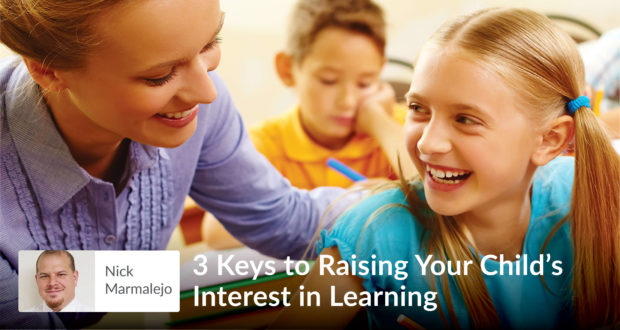Summary
Adopt Psychologist Carl Rogers’ three virtues for teachers to help raise your child’s Interest in learning and become a more effective homeschooling parent.The winters of the Chicagoland area can be severe and unwelcoming.
The cold winds that blow off Lake Michigan cut through the flatlands like an axe, penetrating its inhabitants to the bone. Days upon days of bleak gray begin to weigh upon the spirit, and the only solace one may find is generally to be sought indoors.
Of course, most children native to this area find themselves in school for most of winter, sheltered from the responsibilities of life and the world outside, but still challenged by the demands of their classroom and social environment. It was on one such day, in the dead of winter, that I had my most memorable moment in elementary education as a first-grader.
Mrs. Norton was my teacher. She privately summoned me to her desk that day, sensing quite rightly that there was an interior problem going on with me as a learner. During class, we typically went through problems or instruction together as a classroom of approximately 25 kids. There was little time for private instruction, and I was too embarrassed to ask questions about things everyone else seemed to understand.
At some point, I fell behind and checked out of the learning process. I began to believe that I could not do the work, that it was beyond me. I filled in the blanks with straight lines on a series of assignments, which was the impetus of my summons.
Quite afraid, I approached her desk, knowing deep-down why I was there. With a mysteriously stern yet kind and reassuring face, Mrs. Norton asked: “I was going through everyone’s assignments and I found this. What is going on?” I was mum.
“Is everything okay at home?” “Yes,” I replied.
“Is this your best work?” “No.”
“If you needed help, why didn’t you ask?
Silence. “Are you afraid to ask questions?” A little more silence and then “Yes.”
“How come?” “I feel stupid when I ask questions.”
After this, my recall blurs, but at this point, she reassured me that it was always okay to ask questions, that it was part of learning, and not to worry what others—whether she or my peers—think about me. She let me know that she would always be there to support me when I raised my hand or asked questions of her personally. She told me that I was far more capable than what I was currently demonstrating.
In a word, she re-instilled within me a trust for the learning process and confidence in myself as a learner. As hackneyed as it sounds, from then on, I believed in myself, that I could learn, and when I had a question, she would be there to support me. Looking back, I gratefully recall how Mrs. Norton lived up to her special promise of support for the rest of the year, and I was forever changed as a learner.
Discerning Inspiration
I will never know if Mrs. Norton was a student of humanist psychologist Carl Rogers, but my experience is a validation of some of his work and understanding of the human person and what motivates them. All teachers—whether in a homeschool or brick and mortar school—set the tone for their classroom and thus design the environmental conditions for learning.
Writing in 1957, Rogers laid out three hallmarks or qualities that he believed every counselor or teacher should possess, traits that will foster and create an environment for personal growth. These three qualities, in brief, are genuineness and sincerity, unconditional positive regard (perhaps best considered as “unconditional love”), and empathy.
In my case, as a first grader, I found these qualities in Mrs. Norton. She spoke to me just as clearly with her tone and demeanor as with her choice of words. Because she did so, I felt that I could trust her as a teacher. This trust was engendered because of her empathy, non-judgmental attitude, and genuineness or integrity.
The result is that she rekindled my interest in actually learning, rather than having me just surviving the daily classroom and bleakness outside. She guided me toward a better understanding of myself and my capability.
As Seton homeschooling parents, we can do the same. A consideration of our attitudes towards our children as students merits personal reflection. How could we be doing our job better? Where do we need help? These questions and more are ones we should not hesitate to ask as we take stock of our own homeschool.
Even if we are on target with the “what” we are teaching, oftentimes a wrench gets thrown into the works when it comes to the “how.” A consideration of Rogers’ three virtues for teachers and counselors, I believe, is a fine place to begin pondering how we can be more effective as parents and teachers.

 Seton Magazine Catholic Homeschool Articles, Advice & Resources
Seton Magazine Catholic Homeschool Articles, Advice & Resources

